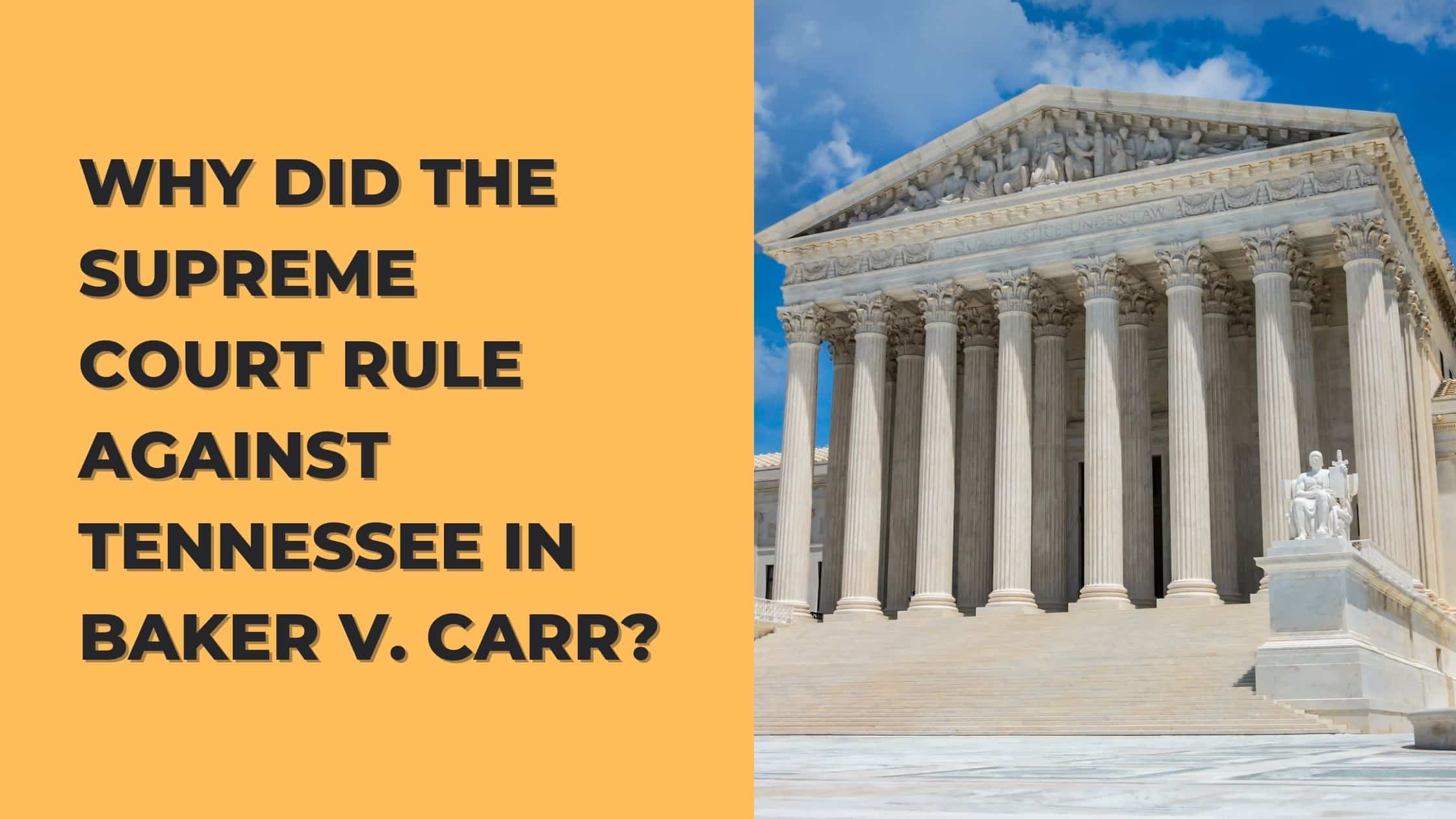why did the us supreme court rule against the state of tennessee in baker v. carr?
In the landmark case of Baker v. Carr, the United States Supreme Court delivered a significant ruling that had far-reaching implications for the balance of power in the American political landscape. This article delves into the reasons behind the Court’s decision and its profound impact on the state of Tennessee.
Setting the Stage: Background and Context
The United States Constitution guarantees every citizen the right to equal representation. However, by the mid-20th century, it became apparent that certain states were experiencing a disparity in their representation systems. Tennessee, in particular, was facing a significant challenge in this regard. The state had not reapportioned its legislative districts for nearly six decades, leading to a situation where urban areas were underrepresented, while rural regions held disproportionate sway.
The Constitutional Conundrum
The principle of “one person, one vote” lies at the heart of democratic representation. In Baker v. Carr, the central issue revolved around whether federal courts had the authority to intervene in matters of legislative apportionment, which traditionally fell under the jurisdiction of state legislatures. The state of Tennessee argued that this was a “political question” beyond the purview of the courts. However, this contention was about to be put to the test.
Challenging the Status Quo
The case was brought forth by Charles Baker, a resident of Tennessee, who contended that the state’s legislative districts were grossly imbalanced and violated the principle of equal representation. The disparity between urban and rural districts had led to a situation where a vote in one district carried significantly more weight than a vote in another district. This fundamental inequality was at odds with the core democratic values of the nation.
The Supreme Court’s Verdict
In a groundbreaking decision, the US Supreme Court ruled against the state of Tennessee. The Court held that issues of legislative apportionment were justiciable, meaning they were within the realm of the federal courts to adjudicate. The decision established a precedent that federal courts could intervene in cases where citizens’ constitutional rights to equal representation were violated, effectively overturning the notion that legislative apportionment was solely a political matter.
Impact and Legacy
The ruling in Baker v. Carr had a seismic impact on the American political landscape. It set the stage for a wave of reapportionment cases across the nation, prompting states to reevaluate their legislative districts to ensure a fair and equitable representation of their populations. The case marked a significant shift in the Court’s approach to “political questions,” establishing the principle that there are constitutional limits to how states can draw their districts.
Conclusion
In conclusion, the US Supreme Court’s ruling against the state of Tennessee in Baker v. Carr was a pivotal moment in the nation’s legal history. By recognizing that issues of legislative apportionment were justiciable, the Court reaffirmed its role in upholding the principles of equal representation and democracy. The decision’s enduring legacy serves as a reminder that the pursuit of fairness and justice knows no boundaries, even within the intricate realm of political maneuvering and power dynamics.







